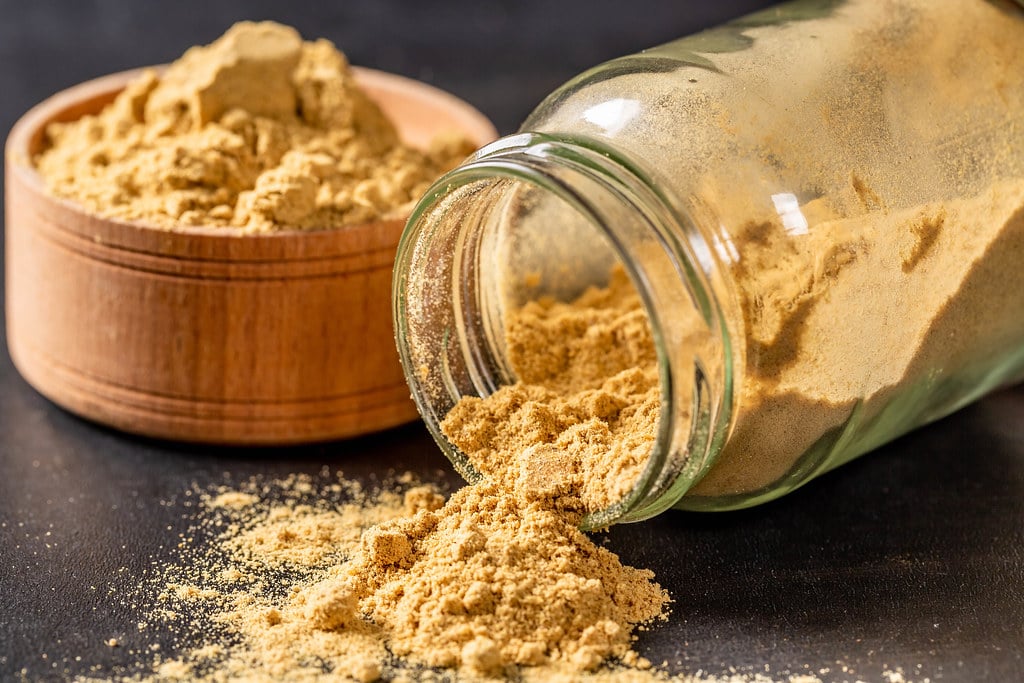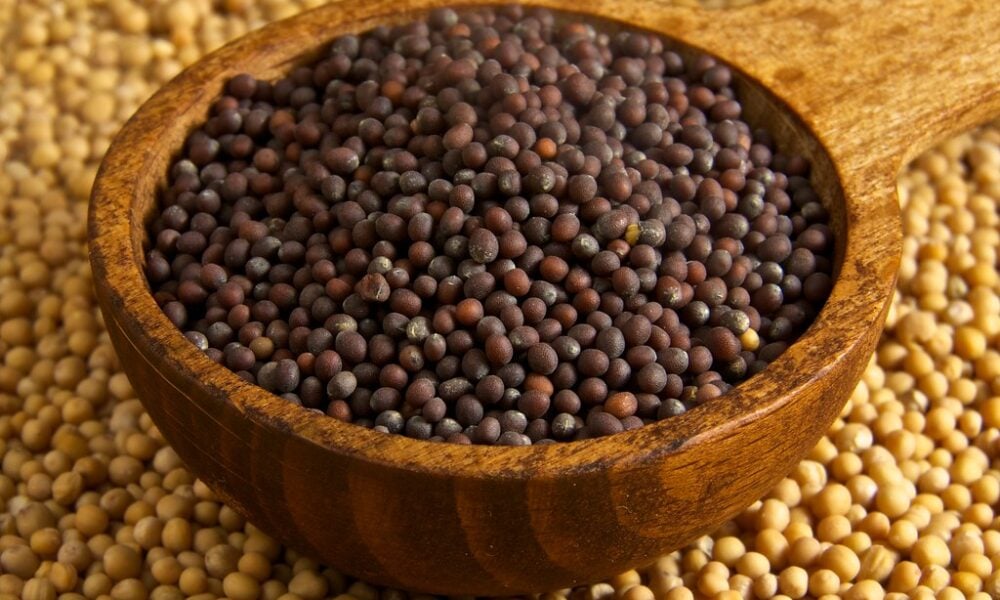Mustard is one of the 14 main food allergens in the UK which must be labelled and highlighted if included in food or drink products. Mustard is often derived from mustard powder and mustard seeds. Mustard sauce comes in a variety of types, such as Dijon mustard, English mustard, or wholegrain mustard. Consumers can have severe reactions ranging from wheezing, nausea, hives, and anaphylaxis in severe cases if they consume an ingredient they are allergic to or intolerant to. Food companies must state the 14 main allergens, if present in their product, in bold, contrasting colours, or must be highlighted.
While not an exhaustive list, some of the most common foods containing mustard are:
- Bread
- Salad dressing
- Barbeque Sauce
- Soups and sauces
- Pickles
- Mayonnaise
- Processed and deli meats
It may not be recognisable in the smell or taste of the food item, or be visually obvious. One should always check the label before consuming the product.
14 Main Food Allergens - Mustard

The mustard plant, which belongs to the Brassica family, produces mustard seeds which can be white, yellow, black, or brown. Brown and black seeds are spicier than white and yellow seeds and are added to ingredients such as vinegar, sugar, and salt. Mustard can be labelled mild or hot depending on the seed combinations used to achieve heat strength, but this is not a requirement when labelling food products. It is critical for individuals to closely read the label of their food item in the event that mustard is in it.
Mustard seeds can be processed into flour or powder, and utilised in various cooking methods. While cooking with mustard, chefs and cooks can use whole seeds in a range of methods within food products such as marinating, roasting, or adding to pickled foods. Table mustard can be made by combining whole, powdered, cracked, or bruised mustard seeds. Mustard can also be used to thicken sauces and add flavour.
What is Mustard?
The classic jars of prepared mustard in supermarkets are made from ground mustard seeds (Colman’s, for example blends both white and brown mustard seeds to form a mustard flour), mixed with vinegar, water, or other liquids. The Colman’s popular recipe includes water, sugar, salt, wheat flour, turmeric (for the signature colour), citric acid, and stabiliser (xanthan gum).
Mustard Allergy Symptoms
It is advised that you speak to your GP (who can refer you to an allergen clinic) if you suspect you suffer from a mustard allergy, as symptoms that start out mild can increase in severity over time. Mustard allergy symptoms may appear quickly and can occur within a couple of minutes to a couple of hours.
Food allergies to mustard is among one of the most severe. It can produce an increase in histamine and potentially anaphylactic shock if consumed.
Some of the most common symptoms are:
- An itchy or tingly sensation in the mouth
- Rashes, such as hives
- Feeling lightheaded
- Nausea
- Diarrhoea
- Anaphylactic shock
Anaphylaxis may present as: swelling of the airways, chest tightness, difficulty breathing, or dizziness.
Mustard Varieties and Food Items that contain Mustard
Table mustards, including:
- Dijon;
- English;
- American-style;
- Sweet mustard;
- Hot-dog mustard;
- Wholegrain.

Other foods which may contain mustard are:
- Many sauces include mustard such as tomato ketchup, mayonnaise, barbeque, curry, and honey mustard
- Vinaigrette and other salad dressings
- Chutneys
- Stock Cubes
- Pickled foods including pickled onions, pickles, and gherkins
LiberEat - Allergen Error Detection Software
Food allergen rules and regulations continue to change and evolve. Food businesses in production, hospitality, catering, and retail must be vigilant when working with ingredients, products, and dishes containing allergens and exercise due diligence when providing ingredient and allergen information to consumers. Successful allergen management is a big part of Food Safety professionals creating a culture of care and excellence within their teams.
LiberEat offers a second line of defence for food businesses by detecting errors, allergens, and other harmful ingredients with our proprietary Allergen Detection Software. Food businesses can apply this technology directly to identify errors in allergen communications, preventing the risk of injury to consumers. Contact us today to learn more about how we can support your existing food safety processes.
LiberEat works closely with food businesses to ensure consumers are safe and healthy when consuming your produce.

